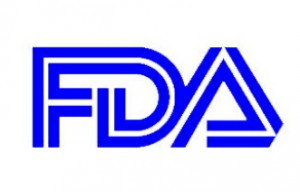The Food and Drug Administration announced that they will continue to study bisphenol-A, or BPA as it is commonly known, rather than ban it. This decision was announced in response to a petition filed by the National Resources Defense Council in 2010, which asked FDA to ban the chemical in food packaging.
 The decision was part of a legal settlement with the NRDC that was reached in December 2011 after the court issued a consent degree.
The decision was part of a legal settlement with the NRDC that was reached in December 2011 after the court issued a consent degree.
This was part of the FDA’s statement:
The Food and Drug Administration’s assessment is that the scientific evidence at this time does not suggest that the very low levels of human exposure to BPA through the diet are unsafe. The agency has performed extensive research on BPA, has reviewed hundreds of other studies, and is continuing to address questions and potential concerns raised by certain studies.
The statement refers to some problematic studies about the chemical, including a Yale study that showed BPA can impair brain function and a study at the Peninsula College of Medicine and Dentistry that found higher urinary BPA concentration is associated with the risk of heart disease.
Dr. Dennis Keefe, director of FDA’s Office of Food Additive Safety, said in a statement that, “we make public health decisions based on a careful review of well performed studies, not based on claims or beliefs. We have to perform an unbiased evaluation of the data.”
The agency also said that “there is not compelling scientific evidence to justify new restrictions” on bisphenol-A. The chemical is used in can linings and plastic bottles.
The FDA’s National Center for Toxicological Research (NCTR) has been studying BPA in-depth since September 2008. They found that the level of BPA from food that could be passed from pregnant mothers to the fetus is so low it could not be measured. And they found that exposure to BPA in human infants is about 90% less than previously estimated.
The agency says that consumers should not change their diets to avoid foods packaged in cartons that contain BPA, such as canned and frozen fruits and vegetables.
If consumers want to limit their exposure to BPA, they should:
- Avoid plastic containers with the codes 3 or 7 on the bottom.
- Don’t put boiling liquid in plastic containers made with BPA
- Discard plastic bottles with scratches, since that may lead to release of the chemical.
The NRDC issued a response to this decision late today.




